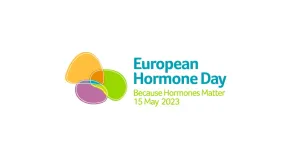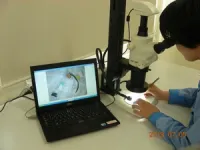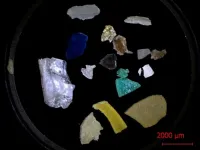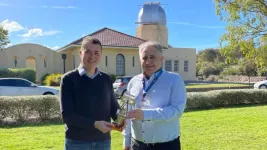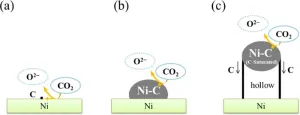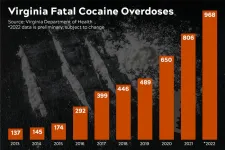EMBARGOED TO 15 MAY 2023
Contact: Victoria Withy
Head of Marketing, Communications and Membership
E: victoria.withy@ese-hormones.org
M: +44 (0) 7761 800855
Today, 15 May 2023, the European Society of Endocrinology (ESE), the European Hormone and Metabolism Foundation (ESE Foundation) and other partners are marking the second European Hormone Day.
European Hormone Day brings together all those with an interest in endocrine health and disease to promote a better understanding of the role of hormones and encourage a collective call for change about how hormones are addressed in health policy across Europe.
This builds on the success of the inaugural European Hormone Day in 2022, when which saw 35 national and specialist endocrine societies endorse the ‘Milano Declaration’, published jointly by ESE and the ESE Foundation here. The Declaration, ‘Recognising the Key Role of Hormones in European Health: ‘The Milano 2022 Declaration’, calls for a stronger inclusion of the endocrine health perspective as an integral part of European health policies, as laid out in the ESE White Paper on Hormones in European Health Policies published in May 2021 here.
This year, ESE and the ESE Foundation publish an annex to the Declaration, 10 Recommendations for Good Hormone Health, which can be downloaded here. This complements the call for change to put hormones at the heart of health policy in Europe, with simple actions each of us can take to ensure better hormone health.
ESE President, Martin Reincke, says ‘Hormones often fly under the radar, but they have a huge impact on health and disease. With a better understanding of their importance, more can be done to prevent, diagnose and treat prevalent endocrine-related diseases such as diabetes, thyroid disorders and cancer, and the more the 400 rare conditions that affect millions across Europe.
European Hormone Day is a chance to spread the word and build awareness of the small steps we can all take towards better endocrine health.”
Andrea Giustina, Chair of the ESE Foundation, adds that the need to put hormones at the heart of health policy-making requires a collective effort, “Given that hormones play a role in so many different conditions, the endocrine community has a unique opportunity to join forces to push for change. European Hormone Day brings us together to urge decision-makers to take account of hormone health, attract much-needed research funding, and ultimately improve outcomes for endocrine patients – because hormones matter!”
But European Hormone Day doesn’t stand alone: there are many other European and worldwide awareness initiatives that deserve attention. Today, ESE and the ESE Foundation also publish a leaflet with personal patient stories that speak to the value of such activities, and a calendar to allow the endocrine community to focus our combined efforts over the coming year. The leaflet can be downloaded here and the calendar is here.
Those participating in European Hormone Day on social media will be using the hashtag, #BecauseHormonesMatter. ESE encourages the use of this same hashtag on related awareness days to build momentum around efforts to raise the profile of endocrine health and disease in Europe.
You can find more information about the launch at: www.europeanhormoneday.org
---- ENDS ---
KEY FACTS – Notes to the Editor:
6 in 10 adults and 1 in 3 children live with overweight or obesity. Obesity is associated with 80% of type 2 diabetes cases, 35% of ischaemic heart disease cases, and 55% of hypertension cases in Europe, along with many other comorbidities. More needs to be done by health care systems to fully account for obesity as a chronic relapsing disease, dedicate resources for prevention and treatment, and fund research to develop new treatment options.
Cancer is the second leading cause of death and morbidity in Europe. More than 50,000 new cases of thyroid cancer are diagnosed every year, primarily in young women, and median survival of neuro-endocrine tumors is only 41 months. The Beating Cancer Plan and Horizon Europe research calls need to account for the endocrine components of cancer, including the longer-term quality of life and endocrine comorbidities of cancer therapies.
Rare diseases overall affect 30 million Europeans, and this includes the patients suffering from more than 400 rare endocrine diseases. Many patients wait for faster diagnosis, innovative treatments and equal access to care around Europe. European Reference Networks bring knowledge and expertise together and need to be fully supported by Europe and embedded in the national health care systems.
Over 1500 chemicals of concern (endocrine disrupting chemicals) used in packaging, pesticides and biocides, cosmetics and toys contribute to many incidences of endocrine cancers, obesity, diabetes and thyroid disease and rising rates of infertility. This generates a cost of between €157 and €270 billion per year in health care expenses and lost earnings. Stronger legislation is needed to protect vulnerable groups in our population, including pregnant women, babies and children in their development.
About the European Society of Endocrinology
The European Society of Endocrinology (ESE) provides a platform to develop and share leading research and best knowledge in endocrine science and medicine. By uniting and representing every part of the endocrine community, ESE works to improve the lives of patients.
Through the more than 50 National Societies involved with the ESE Council of Affiliated Societies (ECAS) and partnership with specialist endocrine societies, ESE and its partners jointly represent a community of over 20,000 European endocrinologists.
ESE and its partner societies work to promote knowledge and education in the field of endocrinology to health care professionals, researchers, patients and the general public.
ESE informs policy makers on health decisions at the highest level through advocacy efforts across Europe. Find out more: www.ese-hormones.org.
About the European Hormone and Metabolism Foundation
The overarching aim of the European Hormone and Metabolism Foundation – Foundation of the European Society of Endocrinology (ESE Foundation) is for public benefit.
The European Hormone and Metabolism Foundation is a non-profit organisation dedicated to improving human health. By focusing on people with endocrine disorders, the ESE Foundation’s mission is to promote endocrine health, address endocrine disease, and improve patient care. The Foundation’s goal is to devote to hormone and metabolic health. To ensure the best possible quality of life, the Foundation’s mission is to raise public and political awareness of hormone and metabolic health and disease, as well as research, policies, and care.
Find out more: www.ese-foundation.org.
END
